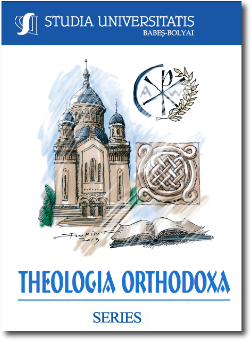PIETISTIC WAY OF LIFE AND SOPHIOLOGY: SPINOZA’S RECEPTION BY THE RADICAL PIETIST GOTTFRIED ARNOLD (1666-1714)
PIETISTIC WAY OF LIFE AND SOPHIOLOGY: SPINOZA’S RECEPTION BY THE RADICAL PIETIST GOTTFRIED ARNOLD (1666-1714)
Author(s): Picu OcoleanuSubject(s): Christian Theology and Religion, Early Modern Philosophy, Systematic Theology
Published by: Studia Universitatis Babes-Bolyai
Keywords: Spinoza; Pietism; Sophiology; acosmism; Pantheism; fatalism; philosophy as way of life.
Summary/Abstract: After the fierce polemic (1720-1740) between Joachim Lange and his Pietist companions from Halle, on one hand, and Christian Wolff as representative of the Enlightenment, on the other hand, the two sides have reached a common denominator: the refutation of the philosophy of Benedict Spinoza as “acosmism”/Pantheism with fatalist consequences. Spinoza and the Spinozism became the common enemy of both, Pietism and Enlightenment. Against such an interpretation, the German radical Pietist Gottfried Arnold proposes in the second volume of his work Unpartheyische Kirchen- und Ketzer-historie (1700/1741) another, very original Spinoza’s reading. The Dutch philosopher thinks and actually lives as an authentic Pietist. He affirms and practices the unity between thinking and life and proposes a kind of metaphysics of the unity between God and nature, which should not be understood as pantheism, but as sophiology: all the things are included in God because their concepts are thought by the “Eternal Wisdom of God”.
Journal: Studia Universitatis Babes-Bolyai - Theologia Orthodoxa
- Issue Year: LXI/2016
- Issue No: 1
- Page Range: 205-220
- Page Count: 16
- Language: English

